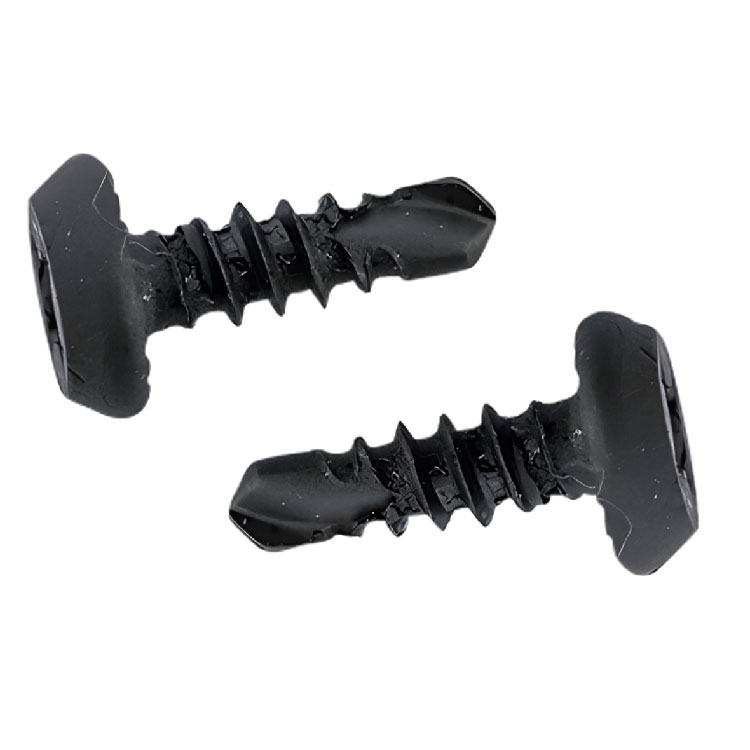Self Drilling Screws: Efficient Fastening for Metal and Wood Applications
2025-05-14
Self drilling screws are specialized fasteners designed to drill their own hole and securely tap into materials like metal, wood, or plastic—without the need for a pre-drilled pilot hole. This innovative feature significantly speeds up construction and manufacturing processes, making self drilling screws an essential component in industries such as construction, automotive, HVAC, and metal fabrication.
What Are Self Drilling Screws?
Self drilling screws combine the functions of a drill bit and a screw into one tool. At the tip of the screw is a pointed, drill-like end that cuts into the material, followed by sharp threads that grip and hold firmly. This eliminates the need for separate drilling and fastening steps, reducing labor time and improving efficiency.

Key Features
Drill Point Tip: The cutting tip allows the screw to penetrate metal or wood directly, acting like a drill.
Threaded Shaft: Provides secure grip and strong holding power.
Head Options: Available in hex, pan, flat, or countersunk heads to suit various applications.
Coatings: Often coated with zinc or other materials for corrosion resistance, especially in outdoor or high-moisture environments.
Common Types
1. Hex Washer Head Self Drilling Screws
Popular for metal-to-metal fastening in steel structures and roofing.
Offers excellent torque and easy installation with a hex driver.
2. Flat Head Self Drilling Screws
Ideal for flush finishes in woodworking or light steel applications.
Countersinks into the material for a smooth surface.
3. Pan Head Self Drilling Screws
Suitable for fastening into thinner metal sheets or plastic.
Provides a clean, rounded finish on the surface.
4. Winged Self Drilling Screws
Designed for fastening wood to metal.
The wings ream a hole in wood and break off when hitting the metal.
Advantages
Time-Saving: No pre-drilling required, reducing installation time.
Labor Efficiency: Simplifies the fastening process for workers.
Versatility: Suitable for a wide range of materials and applications.
Secure Fastening: Delivers strong holding power and structural integrity.
Reduced Tool Wear: Fewer tool changes mean less wear and longer tool life.
Applications
Construction: Used for metal framing, roofing panels, siding, and drywall.
HVAC Systems: Fastens ductwork and ventilation components.
Automotive Industry: Assembly of vehicle components and metal parts.
DIY Projects: Ideal for home repairs, furniture assembly, and general woodworking.
Best Practices
Use the Right Drill Speed: High-speed drills can burn out the tip, especially on thicker materials.
Select the Proper Length: The screw should be long enough to penetrate both surfaces and ensure a tight grip.
Ensure Correct Driver Bit: Prevents cam-out and damage to the screw head.
Inspect the Material Thickness: Heavier gauge materials may require specific screw types with longer drill points.
Conclusion
Self drilling screws are a smart solution for anyone looking to streamline fastening tasks while ensuring strength and reliability. Their ability to drill, tap, and secure in a single operation makes them invaluable in both industrial and DIY settings. With various types, sizes, and coatings available, choosing the right self drilling screw can greatly enhance the quality, speed, and durability of your project.


